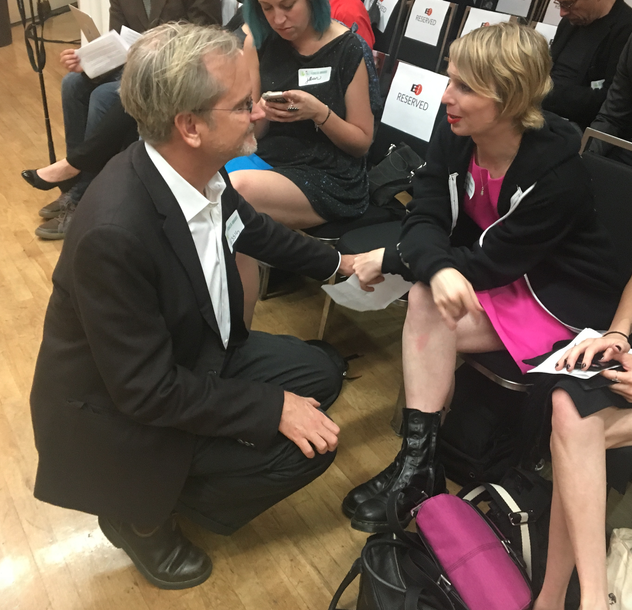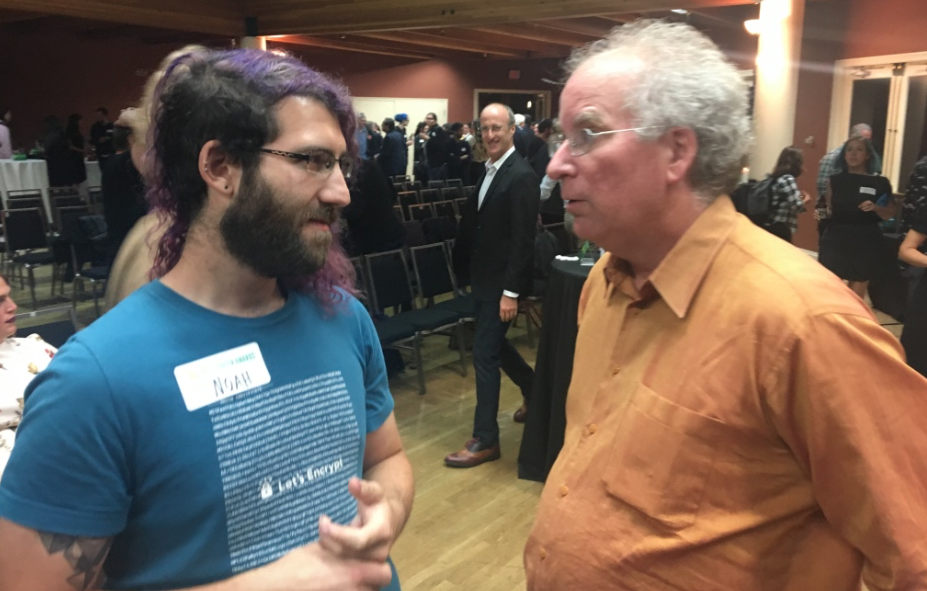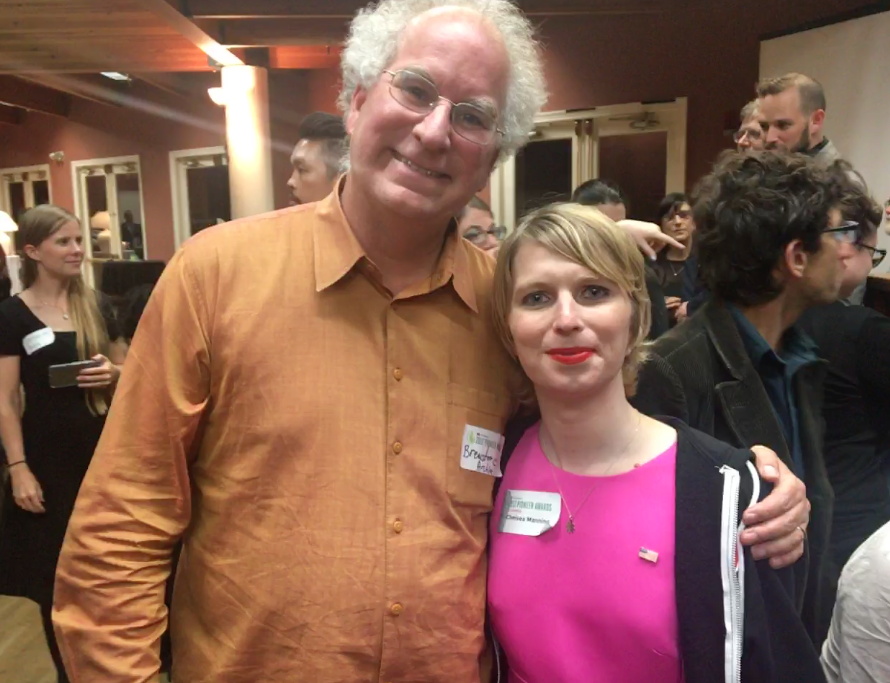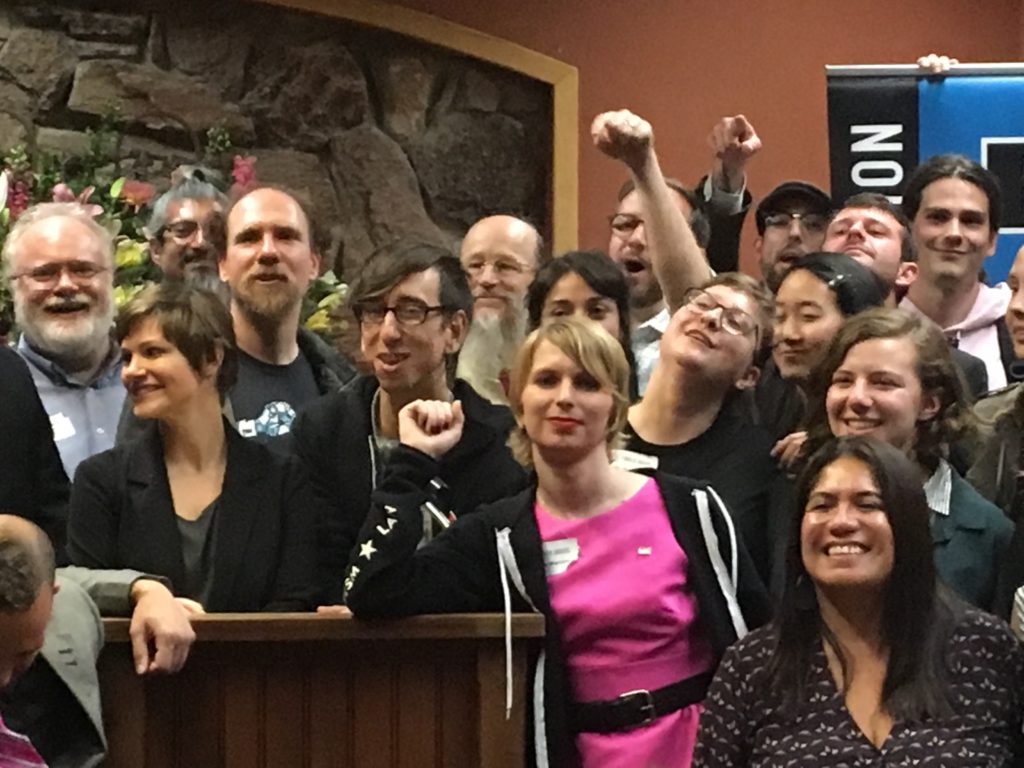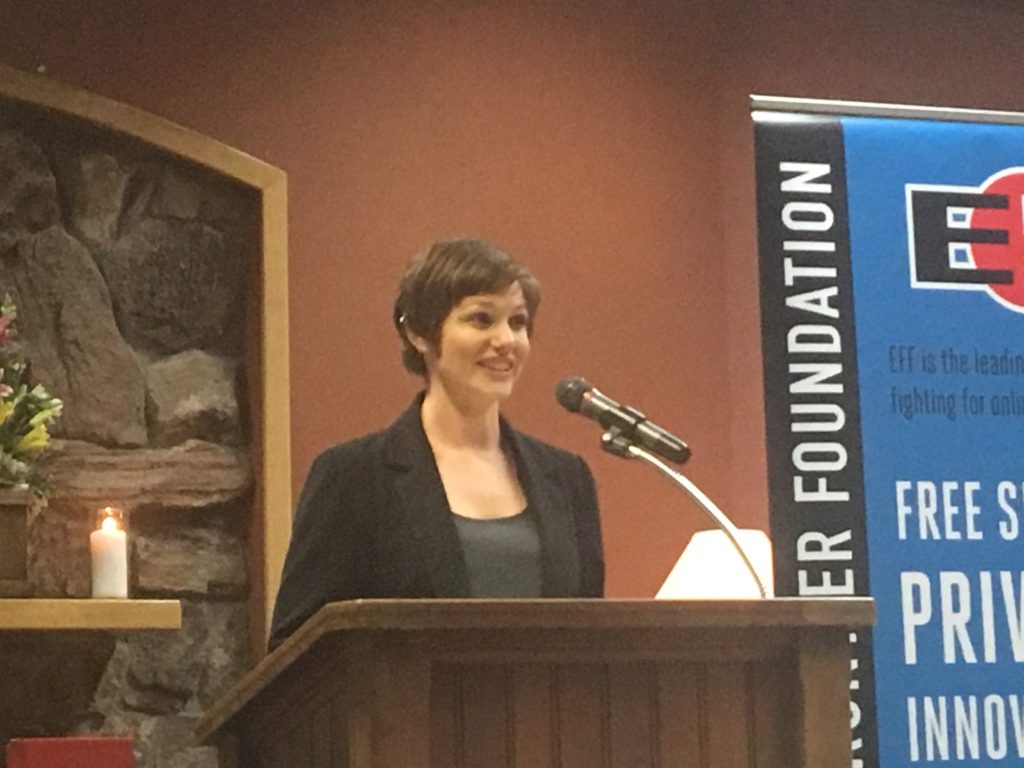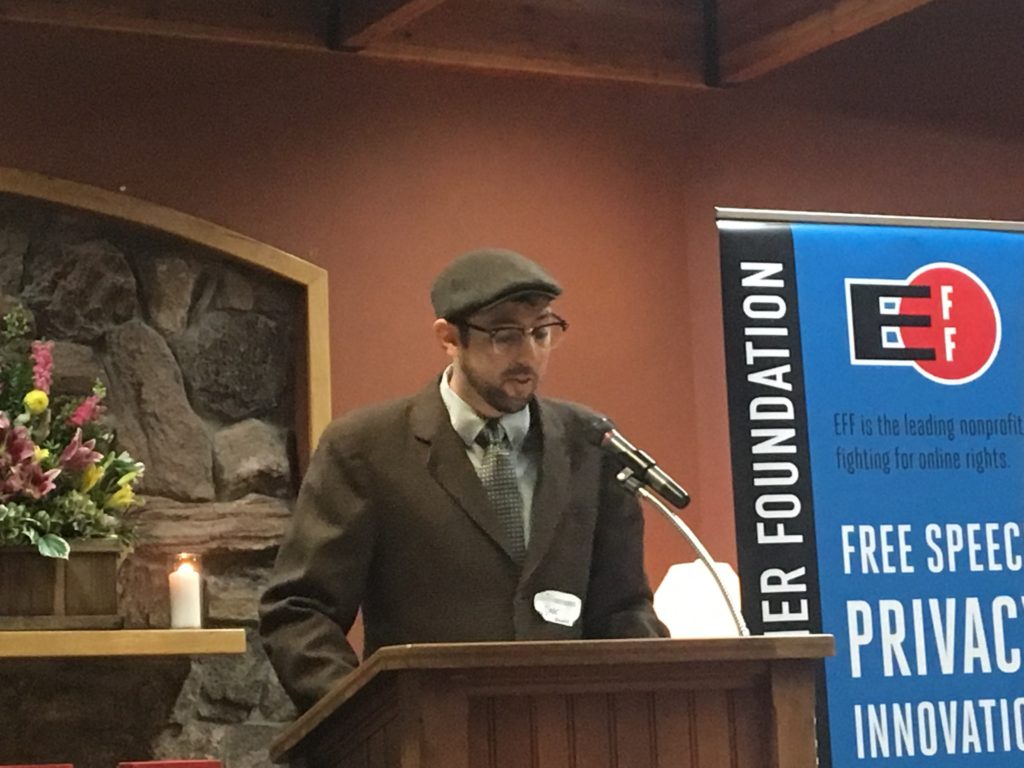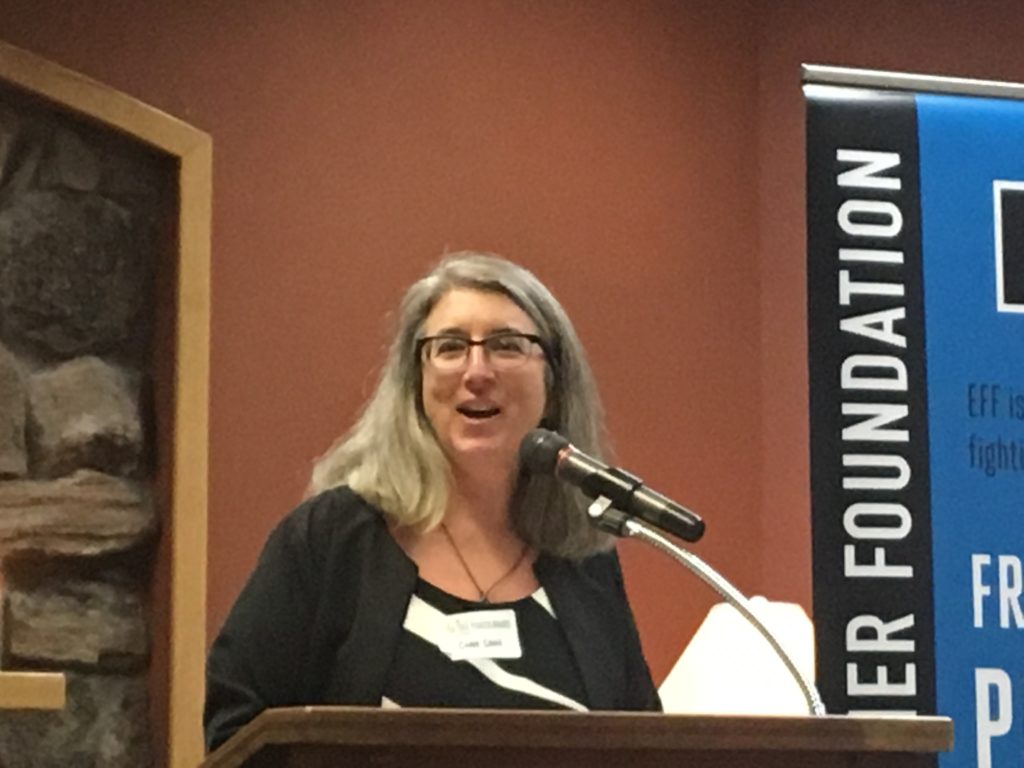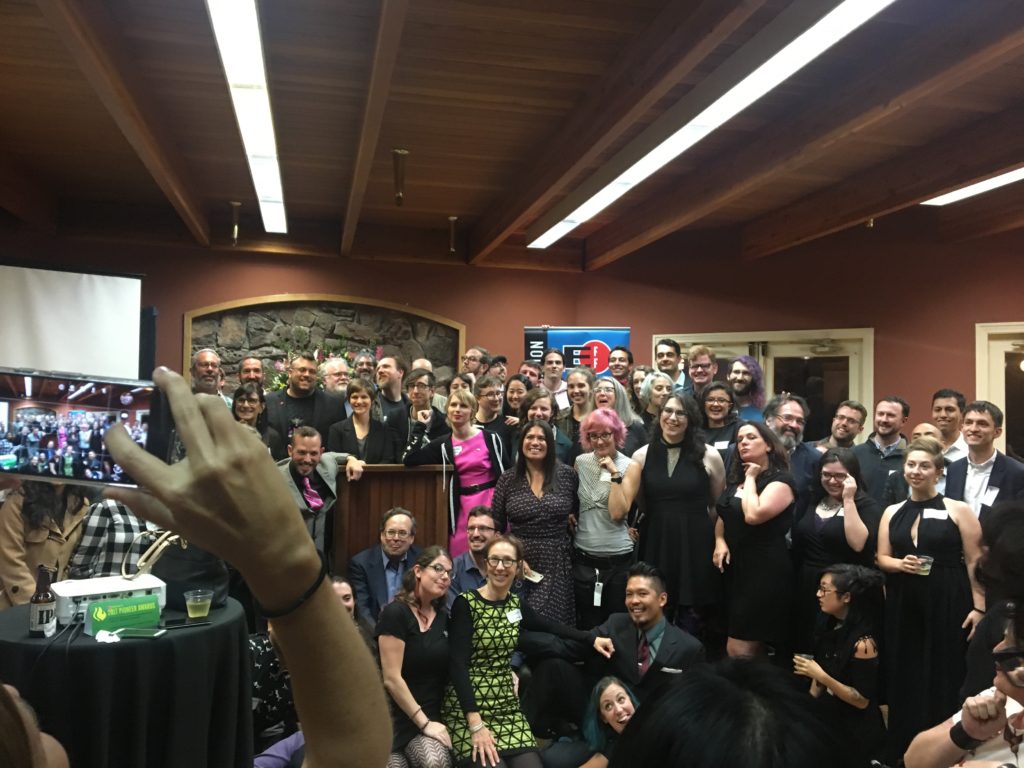danah boyd was given an EFF Pioneer Award last week and she gave an important acceptance speech that we support whole-heartedly.
Please take a minute to read it. (It’s short!)
Or, at least read these excerpts below. :)
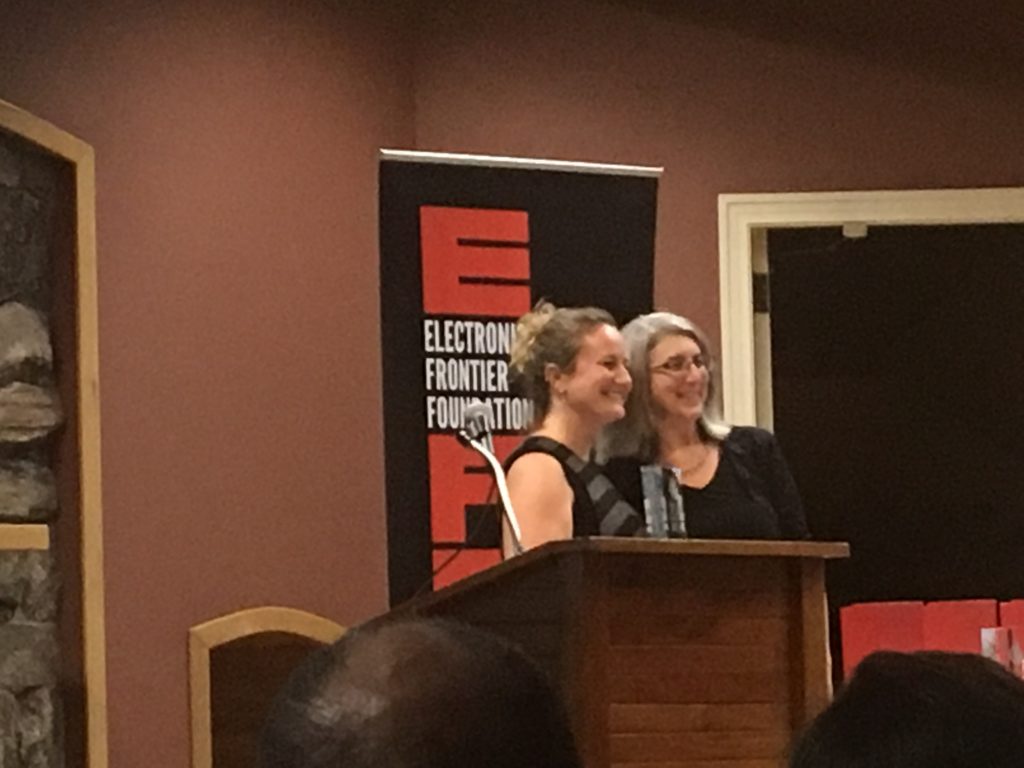
From danah’s speech:
And so, if my recognition means anything, I need it to be a call to arms. We need to all stand up together and challenge the status quo. The tech industry must start to face The Great Reckoning head-on. My experiences are all-too common for women and other marginalized peoples in tech. And it it also all too common for well-meaning guys to do shitty things that make it worse for those that they believe they’re trying to support…
The Great Reckoning is in front of us. How we respond to the calls for justice will shape the future of technology and society. We must hold accountable all who perpetuate, amplify, and enable hate, harm, and cruelty. But accountability without transformation is simply spectacle. We owe it to ourselves and to all of those who have been hurt to focus on the root of the problem. We also owe it to them to actively seek to not build certain technologies because the human cost is too great.
My ask of you is to honor me and my story by stepping back and reckoning with your own contributions to the current state of affairs. No one in tech — not you, not me — is an innocent bystander. We have all enabled this current state of affairs in one way or another. Thus, it is our responsibility to take action. How can you personally amplify underrepresented voices? How can you intentionally take time to listen to those who have been injured and understand their perspective? How can you personally stand up to injustice so that structural inequities aren’t further calcified? The goal shouldn’t be to avoid being evil; it should be to actively do good.
The above quotes with more context, from danah’s speech:
Joi Ito became a dear friend and mentor. He was that guy who made sure I got home OK. He was also that guy who took being called-in seriously, changing his behavior in profound ways when I challenged him to reflect on the cost of his actions. That made me deeply respect him.
I also met John Perry Barlow around the same time. We became good friends and spent lots of time together. Here was another tech luminary who had my back when I needed him to. A few years later, he asked me to forgive a friend of his, a friend whose sexual predation I had witnessed first hand. He told me it was in the past and he wanted everyone to get along. I refused, unable to convey to him just how much his ask hurt me. Our relationship frayed and we only talked a few times in the last few years of his life.
So here we are… I’m receiving this award, named after Barlow less than a week after Joi resigned from an institution that nearly destroyed me after he socialized with and took money from a known pedophile. Let me be clear — this is deeply destabilizing for me. I am here today in-no-small-part because I benefited from the generosity of men who tolerated and, in effect, enabled unethical, immoral, and criminal men. And because of that privilege, I managed to keep moving forward even as the collateral damage of patriarchy stifled the voices of so many others around me. I am angry and sad, horrified and disturbed because I know all too well that this world is not meritocratic. I am also complicit in helping uphold these systems…
I am grateful to EFF for this honor, but there are so many underrepresented and under-acknowledged voices out there trying to be heard who have been silenced. And they need to be here tonight and they need to be at tech’s tables. Around the world, they are asking for those in Silicon Valley to take their moral responsibilities seriously. They are asking everyone in the tech sector to take stock of their own complicity in what is unfolding and actively invite others in.
And so, if my recognition means anything, I need it to be a call to arms. We need to all stand up together and challenge the status quo. The tech industry must start to face The Great Reckoning head-on. My experiences are all-too common for women and other marginalized peoples in tech. And it it also all too common for well-meaning guys to do shitty things that make it worse for those that they believe they’re trying to support.
If change is going to happen, values and ethics need to have a seat in the boardroom. Corporate governance goes beyond protecting the interests of capitalism. Change also means that the ideas and concerns of all people need to be a part of the design phase and the auditing of systems, even if this slows down the process. We need to bring back and reinvigorate the profession of quality assurance so that products are not launched without systematic consideration of the harms that might occur. Call it security or call it safety, but it requires focusing on inclusion. After all, whether we like it or not, the tech industry is now in the business of global governance…
The Great Reckoning is in front of us. How we respond to the calls for justice will shape the future of technology and society. We must hold accountable all who perpetuate, amplify, and enable hate, harm, and cruelty. But accountability without transformation is simply spectacle. We owe it to ourselves and to all of those who have been hurt to focus on the root of the problem. We also owe it to them to actively seek to not build certain technologies because the human cost is too great.
My ask of you is to honor me and my story by stepping back and reckoning with your own contributions to the current state of affairs. No one in tech — not you, not me — is an innocent bystander. We have all enabled this current state of affairs in one way or another. Thus, it is our responsibility to take action. How can you personally amplify underrepresented voices? How can you intentionally take time to listen to those who have been injured and understand their perspective? How can you personally stand up to injustice so that structural inequities aren’t further calcified? The goal shouldn’t be to avoid being evil; it should be to actively do good. But it’s not enough to say that we’re going to do good; we need to collectively define — and hold each other to — shared values and standards.
People can change. Institutions can change. But doing so requires all who harmed — and all who benefited from harm — to come forward, admit their mistakes, and actively take steps to change the power dynamics. It requires everyone to hold each other accountable, but also to aim for reconciliation not simply retribution.

